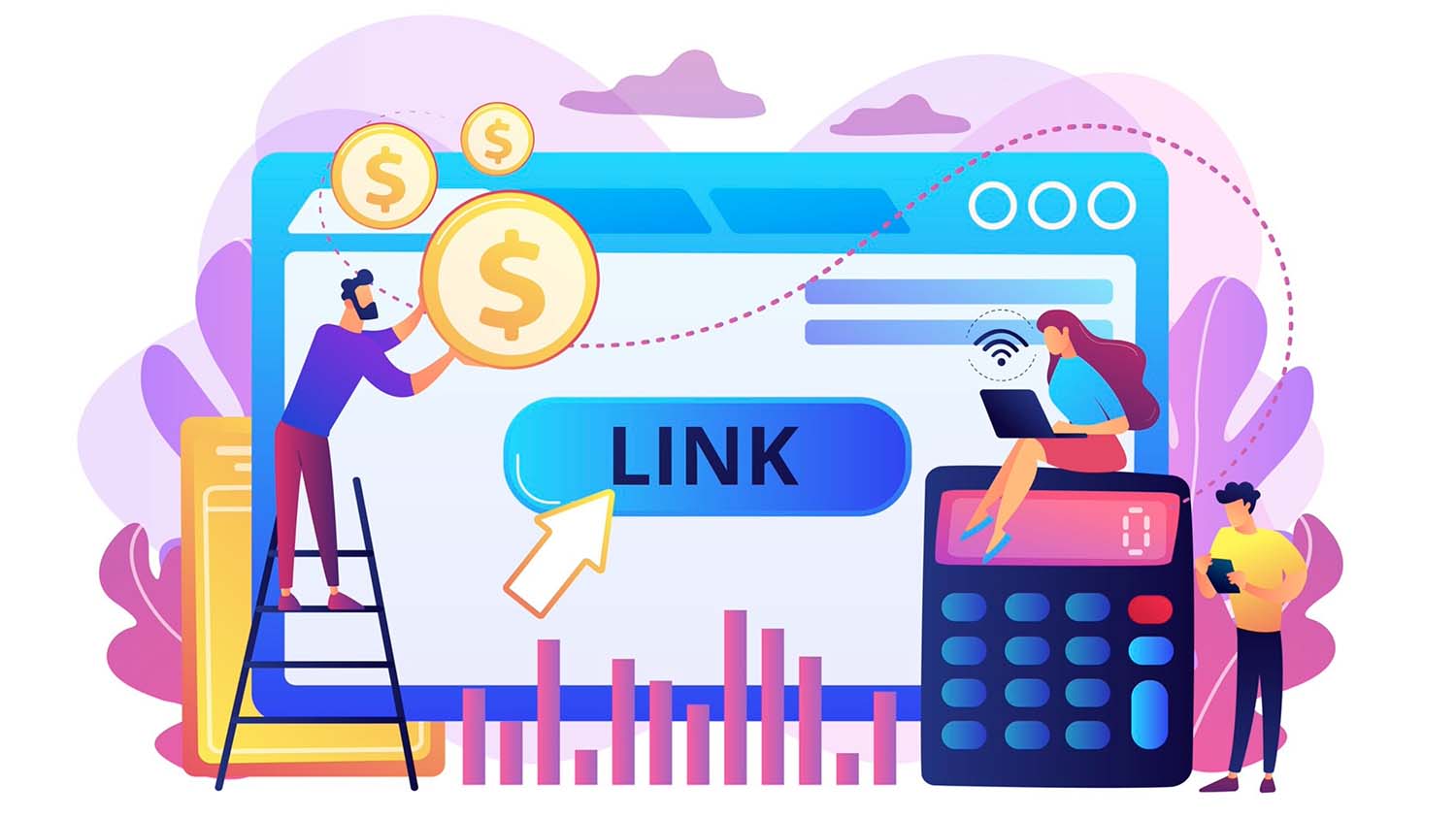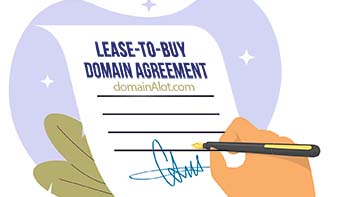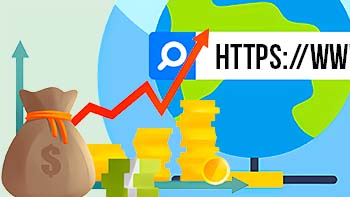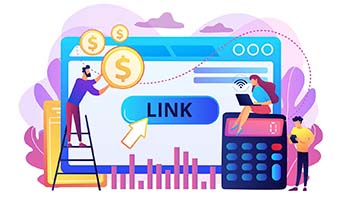Domain Monetisation Strategies
Learn How To Turn Digital Real Estate Into Steady Revenue.

Owning a domain name isn't just about holding a piece of online real estate, it's about holding an opportunity. For many domain investors, those opportunities sit idle, waiting for the right buyer. But the truth is, a domain can generate value long before it's sold. With the right monetisation strategy, every domain in your portfolio can start working for you today.
Let's explore how to turn domains from dormant assets into reliable income streams, and how you can do it transparently, without handing over commissions to traditional marketplaces.
Parking for Passive Income
Without question, the simplest, and often most common first step in domain monetisation is parking.
A parked domain displays ads that earn small amounts of revenue when visitors click on them. It's a simple, hands-off method for generating passive income from your digital assets while you wait for those all important potential buyers to arrive.
Domain parking platforms like Sedo, ParkingCrew, or Bodis, make setup easy, allowing you to point your domain's nameservers to their systems, so they can handle the rest.
Sounds easy? Well, that's because it is. The upside is simplicity and zero maintenance. However, the downside is that earnings are often modest to minute, unless of course your domain already attracts strong organic traffic and you are able to capitalise upon users still visiting the domain based upon previously valuable content. So, with this in mind, domain parking might not be a viable long-term form of passive income for the single domain owner. Still, for those with larger portfolios or keyword-rich names, parking provides an effortless way to keep domains active instead of idle, while providing some level of revenue on the side.
Creating Mini-Sites or "Content Hubs"
Developing small, focused websites, often called "mini-sites," can turn a dormant domain into a revenue-producing asset.
Even a few pages of quality content can increase organic traffic, build relevance, and make the domain far more valuable to buyers.
For instance, imagine for a moment that you owned the domain EcoPanels.com.
As a domain brand it's fine. Nothing special. Nothing unique. Nothing that shouts, "Premium" to command a high-asking price. So, while parking the domain might generate a few dollars each month, you could create instead a short content hub explaining energy efficient building materials, link to related affiliate products, and include ads from a network like Google AdSense.
This approach takes a little effort, but it adds long-term value, and value means revenue.
Why? Because a domain with search visibility, backlinks, and consistent visitors commands higher offers. Plus, content sites can open doors to affiliate marketing and brand partnerships while strengthening your portfolio's authority. Of course, all this is in the short-term, but in the longer-term, a stronger domain authority can also help elevate the overall value of your domain to a potential buyer, meaning the work created to build the hub should be seen as an investment.
Affiliate Marketing and Lead Generation
If you own niche domains that naturally align with a product or service, affiliate marketing can turn them into genuine profit centres.
The idea is simple: you promote third-party product and/ or services through your site, and when visitors buy through your links, you earn a commission.
Domains that are easily tied to industries like finance, health, travel, or tech perform especially well in this area. For example, a domain such as SolarFunding.com could drive leads for green energy financing programs.
This method takes a little more setup than the methods discussed so far. You'll need to research what affiliates are available, what they offer in terms of products and commission levels, not to mention try to discover who else is profiting from them because these will be your competitors. Then you'll need to create compelling content, because your task is to encourage the sale. You'll need to establish tracking links and a clear conversion path, but once it's all in place, it can deliver steady recurring income. And unlike parked domains, affiliate sites add substance and authority, making your domains ever more valuable over time.
Renting or Leasing Domains
Leasing, or renting domains is an increasingly popular model among domain owners who want predictable monthly income without selling their digital assets outright.
As a model, it's especially attractive for startups or businesses that want to test a name before committing to purchase, or want to simply get a product or service going with a strong, easy to remember domain that would otherwise be beyond their budget to acquire.
For owners, leasing means steady revenue and the chance to retain long-term control of your domain. And of course, agreements can be structured for short-term campaigns or long-term use, giving both parties greater flexibility to suit their individual needs.
While leasing domains is a model that has only really begun to become established in recent years, there are a number of things that are critical to remember. Firstly, transparency and trust are essential. Not only between the lessor and lessee, but between the domain owner and the actual service employed to lease the domain.
Many marketplaces take a significant cut of the leasing revenue, leaving owners with less than fair value. That's where independent, commission-free platforms like domainAlot.com stand apart, giving domain owners the ability to lease or sell directly, securely, and without losing control of their profits.
Selling Domains: An Honest Evaluation
We all know that selling a domain can be highly profitable, most specially if the domain is sought after and considered to be a premium or ultra-premium domain. But what makes a "Premium Domain," and who determines this?
Without going into the ins and alls of domain appraising, there are plenty of great articles written by industry expert, Jason Fratt, available to read freely here on domainAlot.com. For example, "What Is A Domain Worth?" and "How To Value A Domain?"
So, rather than looking at domain assessment, for my example, let's consider several similar sounding, or at least, related domain names:
- 123PowerPoint.biz
- 123PowerPoint.com
- 123PPTX.com
- 123PPT.com
The reason I chose these domains is because I want to show the nuances that exist even in extremely similar domains on a level playing field, and how these slight differences can make an enormous impact on valuation.
Any domain that uses a secondary top-level domain (TLD) such as .biz is going to be valued decidedly lower than a .com. That's just how it is. There are instances where this rule is broken, especially under the current AI trend where .ai domains are sold at astonishing rates and prices, but like all trends, this will pass and the .com will still be the most valuable TLD. You might think of it in physical terms like gold. Exchange rates fluctuate, but gold remains the standard by which every currency in the world is measured. At least, this was the case historically. In today's modern world, a fiat currency system has replaced this benchmark system, but you get my point.
Anyway... what does all this mean?
Well, if you should place a value on 123PowerPoint.biz and 123PowerPoint.com side by side, then 123PowerPoint.com will always be the more valuable. So, in a world where the use of PowerPoint and presentations is only growing annually, and therefore potential use and traffic to the domain, we could conclude that 123PowerPoint.com is arguably a high-value/ potentially "Premium Domain."
Moving on to 123PPTX.com, we can also see that this is a .com, and in the same high-demand market segment as the previous domains, but it has the added advantage of being virtually impossible to misspell. I.e. PPTX, which is just four characters in length. Add the fact that these four letters are the actual file extension of PowerPoint files itself, and you have an extremely easy to type, highly relevant domain name which appeals to a highly trafficked market segment. The domain surpasses 123PowerPoint.com, even though the domain uses the actual product name because it is longer than PPTX, and in practical terms, that means there will always be a potential to lose traffic due to typing errors. Therefore, we must conclude that 123PPTX.com is a "Premium Domain" by comparison.
The important thing to understand here is that just because 123PPTX.com is a "better" domain than 123PowerPoint.com, it doesn't actually devalue 123PowerPoint.com, and this is the importance of highly trafficked market segments and sought after domains.
If we then look at 123PPT.com, well, you see where this is heading. Not only is it shorter than PPTX, and most certainly impossible to mistype, but it is also an acronym for PowerPoint itself and perhaps how most people even refer to the software. So, in respect to classification, we are now in "Ultra-Premium Domain" territory.
These four, very similar domains, would have invariably differing values, and recognising that fact when it comes to your domain and the segment/ segments where it would or has relevance will help you understand how to sell your domain strategically.
Selling Domains: Strategically
It doesn't matter whether your domain is a High-Value Domain, a Premium Domain, or an Ultra-Premium Domain. When it comes to selling it, the key is timing and strategy. A name that sells for $2,000 today could fetch $10,000 in the right market next year.
You can't change a High-Value Domain into an Ultra-Premium Domain, no more than you can sell your home for $10,000,000 if it's actually valued at $1,000,000. But, what you can do, is maximise the return you could make from your domain, and that is where you need to think strategically.
Before listing a domain, research comparable sales, analyse demand, and ensure your domain is discoverable.
Listing on large marketplaces can help with exposure, but remember that most charge commissions ranging from 10% to 30%. Meaning, if your domain is worth $1,000, are you really maximising its value by paying a marketplace $300 to sell it and leave you with just $700?
The My Domain Profit Calculator allows you to compare what you can expect to earn from your domain when listing it on any of the leading domain marketplaces and aftermarkets. You might be surprised to discover just how much money you give away when selling your domain. For some, a marketplace like Sedo, Afternic, or Dan, might be attractive, but think back to earlier and the model of gaining revenue from parking. While the upside is simplicity, the downside is lower earnings.
For serious investors, or domain owners with Premium Domains, platforms that allow direct, commission-free sales like domainAlot.com offer a better way forward because they protect your margins, preserve your control, and ensure that more of your hard work stays with you, not the middlemen.
Conclusion
Monetising domains, and making the most out of your digital assets isn't just for experts, it's for anyone who sees the potential in digital ownership.
Whether through parking, affiliate marketing, leasing, or strategic sales, every domain has the ability to earn its keep.
The key is to treat your portfolio as a collection of "active assets", not "passive holdings". Remember, each domain has a story, a niche, and a potential audience. With the right approach, you can turn those into greater and lasting value.
As the internet continues to evolve, fairness and transparency matters more than ever. domainAlot.com exists to help domain owners take full control of their domains and their value. No Commissions, No Hidden Fees, just empowerment for the people who truly own the web. Domain owners, like you.





